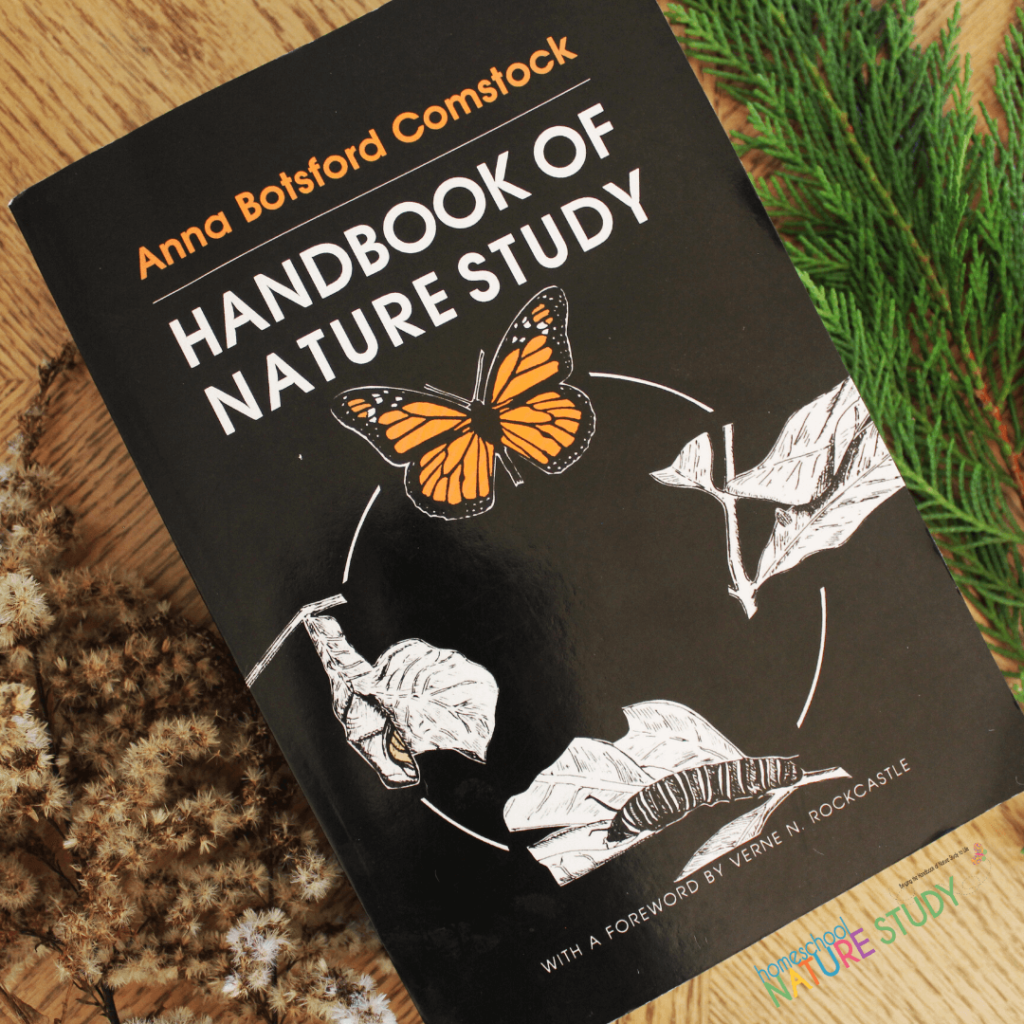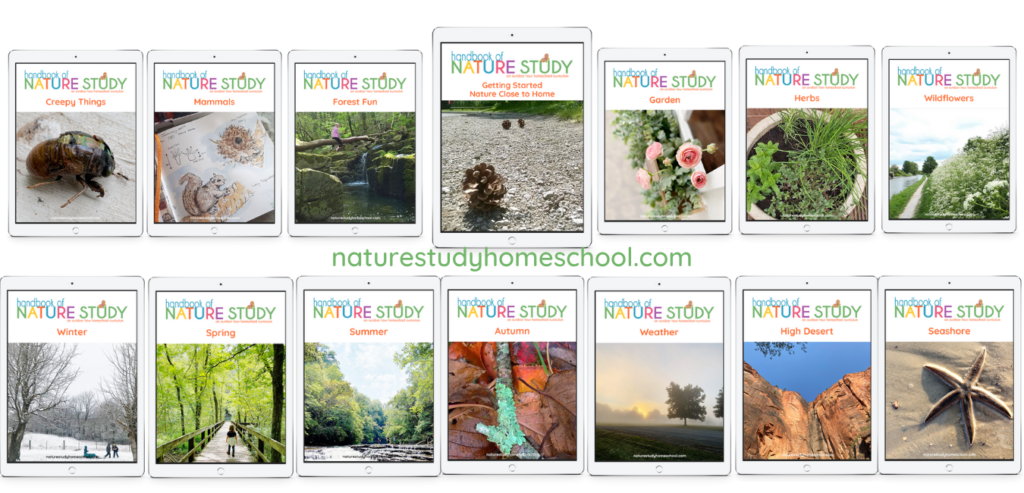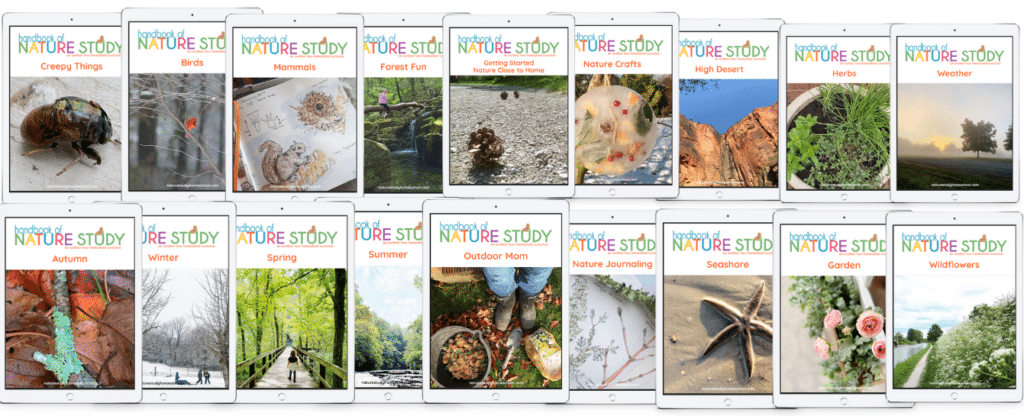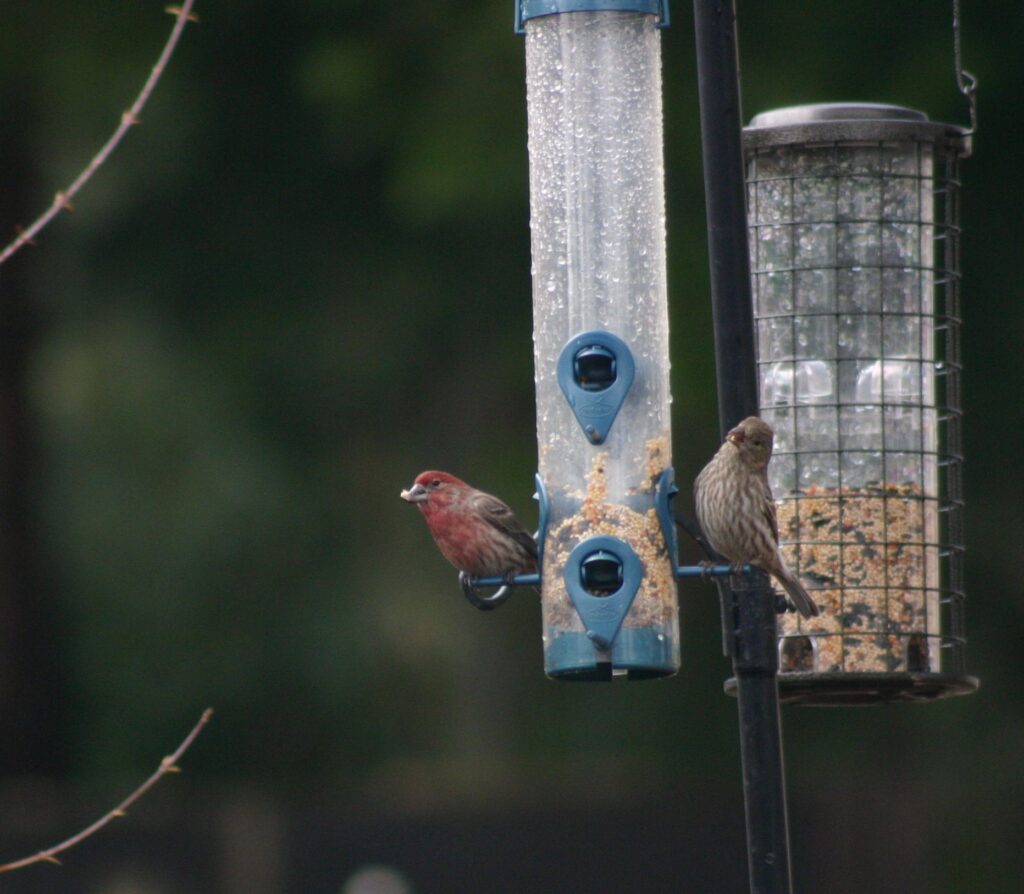We had almost given up trying to fit in a winter insect study but it was such a perfect day today to get outdoors that we took advantage. I whipped up some sandwiches, we jumped in the car, and we had a little picnic before we took a hike on our close-by and most familiar trail.
What impressed me the most as we started to hike was the greenness all around us! The grasses, the mosses, and the ferns are what Crayola would call “spring green”. It felt good to get outside and hike…we saw a red-tailed hawk right above us and it was amazing! We heard robins and Western scrub jays as we went along, nice to hear the familiar spring sounds in the woods.
Then the sky and clouds captured my eye and the beauty made me stop to admire and try to get a good shot of just how beautiful the almost spring sky is in our neighborhood today. We had a hail storm around 5:30 AM today and then the storm passed and the clouds parted, revealing a bright blue sky.
So for our insect study I was hoping to find some oak galls or leaf miners and I was successful in finding one of those things.
Leaf miners are talked about in the Handbook of Nature Study starting on page 329 (Lesson 77).
“Among the most familiar of these are the serpentine miners, so called because the figure formed by the eating out of the green pulp of the leaf curves like a serpent…..The serpent-like marking and the blister-like blothces which we often see on leaves are made by the larve of insects which complete their growth by feeding upon the inner living substance of the leaf.”
We saw evidence of other insects all around the trail when we stopped to look closely.
As I was taking these photos, I happened to see this guy. I have absolutely no idea what kind of insect it is but was great to observe him this afternoon, a sign of life in these woods.
The next leg of the hike had some surprises in store for us. Like these very first of the season Shooting Stars!
And these colorful and cheery buttercups…added bonus….some small fly-like insect.
I have been down this trail a hundred times and I haven’t ever noticed how nicely this manzanita is shaped. It must be pretty old because it is taller than most of the manzanita in this area and looks more like a tree than a bush. See the nice oak on the left all covered with spring moss?
On the way back up the trail we stopped to admire the waterfall and I was excited to see the early spring saxifrage beginning to sprout. Soon it will be blooming and I will know it is spring.
Kona had to get in the water while she waited for me to finish my photo taking. She moved some rocks around in the water with her nose and got a drink.
Here is the waterfall from the trail. This is looking up and there is a section below where we are so the sound of rushing water is heard from the parking place all the way down to where we turn around and come back up. It is one of those very relaxing and comforting sounds that we enjoy on this hike.
Here is a red insect I spotted while I was crouched down taking photos of the saxifrage. I don’t know what it is but it had wings and eventually flew away.
I think that wraps up our hike and our insects for our study. We are going to try to identify the red insect in the photo above and add it to our nature journals this week. What a great day outdoors! I think I have been color deprived because just seeing the few wildflowers, the greens of the grasses and mosses, and the colorful insect has brightened my mood. I think we all feel better.
Update:
I updated my last entry with a photo from last summer….we were at the redwood forest in Northern California. Click over and scroll down to see how small we are in comparison to the base of the tree!








































